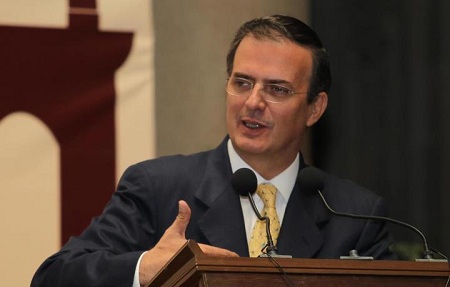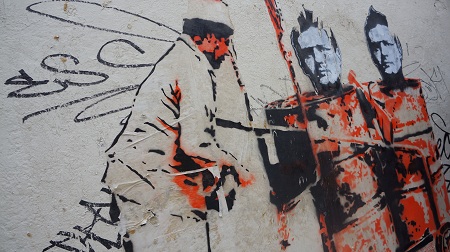Since losing the 2012 Mexican presidential election on July 1 to Enrique Peña Nieto, Andrés Manuel López Obrador has been working at every turn to invalidate the result — through mass mobilization of his supporters to a lawsuit (since dismissed) charging wide scale fraud.![]()
López Obrador (known simply as “AMLO” throughout Mexico) came in a surprisingly close second place in July, winning 32% to Peña Nieto’s 38%, and the leftist Partido de la Revolución Democrática (PRD) won 140 seats in the Cámara de Diputados, the lower house of the Mexican Congress, an increase of 52 seats for the PRD, which kept Peña Nieto’s Partido Revolucionario Institucional(PRI) from an absolute majority. While it is very likely true that the PRI, which ruled Mexico for 71 years from 1929 until 2000, engaged in some amount of fraud, especially in Mexico’s more rural states, some of which have been controlled by the PRI for 80+ years and running — but not the kind of fraud that would make up 6% of the electorate in Latin America’s second-most populous country.
Earlier this month, however, AMLO left the PRD to join forces with the Movimiento Regeneración Nacional (MORENA, the National Regeneration Movement), an umbrella group that combines elements of even more leftist forces in Mexico and the #YoSoy132 youth protest movement that notably highlighted the issue of fraud before the election and served (and continues to serve) as a broad anti-PRI bulwark. It seems clear that AMLO is angling to form a second party on the Mexican left in advance of the 2015 legislative midterm elections and the 2018 presidential election — even before Peña Nieto is inaugurated in December!
That could complicate the PRD’s hopes to consolidate its legislative gains in 2015, and it could yet again deny the Mexican left the presidency after decades of bad luck and wrong turns.
AMLO, the former head of government in the Distrito Federal (the position essentially amounts to being the mayor of Mexico City), very narrowly lost the 2006 presidential election to Felipe Calderón, the candidate of the Partido Acción Nacional (PAN). AMLO thereupon accused Calderón of fraud after that election, and he and his supporters set up camp outside the Zócalo in Mexico City for months to protest the result — going so far as to hold a mock inauguration of the ‘legitimate’ president of Mexico.
It’s those demonstrations — and AMLO’s insistence that he should be the PRD’s 2012 presidential candidate instead of outgoing DF head of government Marcelo Ebrard (pictured above) that have attached to him a bit of a narcissistic — even messianic — image. In the most recent race, AMLO even ran television ads apologizing for his post-2006 demonstrations and pledged to respect the result of the 2012 election.
All of which is to say that, despite the initial fears of a split left in Mexico, and despite a strong core of personal supporters, AMLO’s departure might well be the best thing to happen for the PRD. Continue reading How AMLO’s spinoff movement could help the PRD in Mexico




